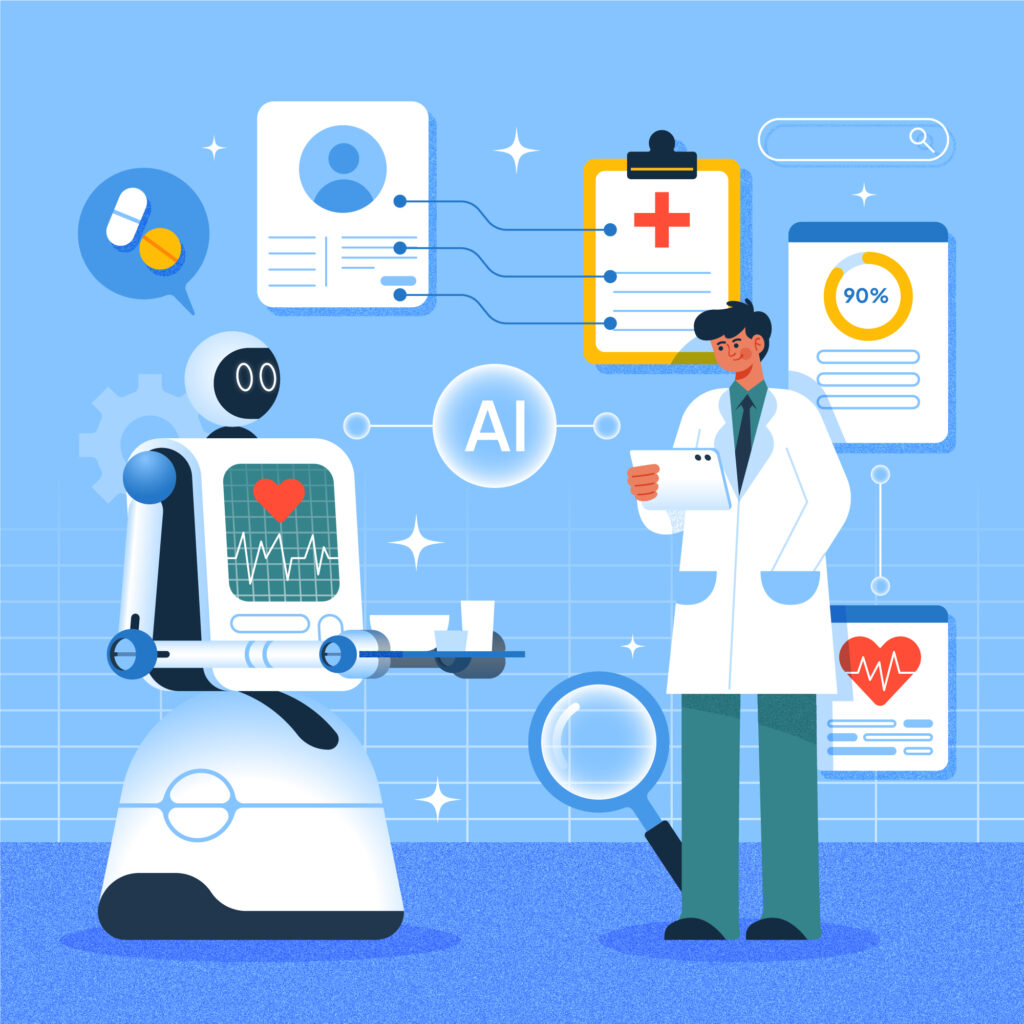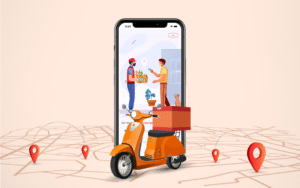
The healthcare industry is undergoing a transformative shift in 2025, driven by the rapid advancement of artificial intelligence (AI). From streamlining administrative processes to enabling more personalized patient care, AI is playing a crucial role in modernizing healthcare integration. At the forefront of this transformation is the rise of generative AI integration services, which are redefining how data is collected, processed, and applied across various healthcare systems.
Evolution of Healthcare Integration
Healthcare integration refers to the seamless coordination of systems, data, and workflows across different healthcare providers, platforms, and technologies. Historically, healthcare systems were fragmented, with data siloed across departments, hospitals, and clinics. This fragmentation often led to delayed diagnoses, redundant tests, and poor patient outcomes.
Over the past decade, efforts to achieve interoperability and data exchange have made progress, but challenges remain. In 2025, the introduction of AI—especially generative AI—into integration strategies is closing these gaps and offering real-time, scalable, and intelligent solutions.
How AI is Reshaping Healthcare Integration
Intelligent Data Processing
Healthcare systems generate vast amounts of data daily, from electronic health records (EHRs) to lab results and imaging data. Traditional data processing methods often struggle to manage this volume efficiently. AI algorithms, particularly machine learning models, can analyze large datasets quickly and accurately.
Generative AI, in particular, can go a step further by synthesizing new insights from existing data. For instance, it can generate comprehensive patient summaries, predict patient outcomes, and assist in clinical decision-making. By automating data interpretation, AI enhances the speed and quality of care delivery.
Enhancing Interoperability
One of the biggest obstacles in healthcare integration is achieving true interoperability—where systems across various providers can effectively communicate and share data. AI-driven platforms now use natural language processing (NLP) and intelligent mapping to harmonize data across different standards and formats.
Generative AI Integration tools are capable of converting unstructured clinical notes into standardized formats that can be easily shared and understood across different systems. This helps eliminate data silos and ensures a unified patient view for clinicians and administrative staff.
Real-Time Analytics and Decision Support
AI enables real-time analytics, providing healthcare professionals with actionable insights at the point of care. These insights can include alerts for potential adverse drug interactions, reminders for preventive care measures, or suggestions for personalized treatment plans.
Incorporating AI into clinical decision support systems allows for predictive modeling. For example, AI can analyze a patient’s history and current symptoms to forecast the likelihood of developing chronic conditions. This predictive capability is revolutionizing how care is planned and delivered.
Generative AI in Clinical and Administrative Applications
Generative AI is particularly impactful in both clinical and administrative areas of healthcare.
Clinical Documentation
Generative AI tools are being used to automate clinical documentation, a task that often consumes a large portion of a healthcare provider’s time. By transcribing and summarizing conversations between doctors and patients, these tools reduce the clerical burden on physicians and ensure accurate and comprehensive records.
Virtual Health Assistants
AI-powered virtual assistants equipped with generative capabilities can support both patients and healthcare staff. These assistants can schedule appointments, send medication reminders, answer patient queries, and even offer emotional support through empathetic dialogue generation.
Revenue Cycle Management
On the administrative side, AI is streamlining billing and coding processes. By interpreting patient records and applying the correct billing codes, generative AI reduces errors and accelerates the revenue cycle. This automation not only saves time but also minimizes the risk of denied claims.
Data Security and Compliance Considerations
As healthcare organizations embrace AI technologies, ensuring data security and regulatory compliance becomes paramount. AI systems handling sensitive patient data must comply with stringent standards such as HIPAA or GDPR.
Advanced AI platforms now incorporate built-in compliance features and robust encryption protocols. Additionally, AI can be used to detect potential cybersecurity threats in real time, further safeguarding patient information.
The Human-AI Collaboration
Despite the remarkable capabilities of AI, the role of human professionals remains central. AI is not a replacement for doctors, nurses, or administrators but a powerful ally. The future of healthcare lies in the collaboration between humans and intelligent systems.
For example, AI can suggest potential diagnoses, but it is the clinician who applies contextual knowledge and empathy to confirm a treatment plan. Likewise, administrative staff can use AI-generated insights to make informed decisions more efficiently.
Future Outlook
As we move further into 2025, the integration of AI in healthcare is expected to deepen. Key trends include:
- Personalized Medicine: AI will enable truly customized treatment plans based on a patient’s genetic makeup, lifestyle, and environment.
- Remote Patient Monitoring: With wearable technology and AI, continuous health monitoring will become more sophisticated and predictive.
- Decentralized Clinical Trials: AI will help manage and analyze data from diverse trial sites, making research more inclusive and efficient.
Moreover, these solutions will continue to evolve, offering even more tailored and intelligent options for healthcare organizations seeking to modernize their operations.
Conclusion
AI, and especially Generative AI Integration, is fundamentally transforming healthcare integration in 2025. By breaking down data silos, enhancing interoperability, and supporting clinicians with real-time insights, AI is not only making healthcare more efficient but also more patient-centered.
As healthcare providers continue to navigate the complexities of modern medicine, embracing AI-driven integration solutions will be essential for staying competitive, compliant, and above all, compassionate. The future of healthcare isn’t just high-tech—it’s smart, connected, and deeply human.



